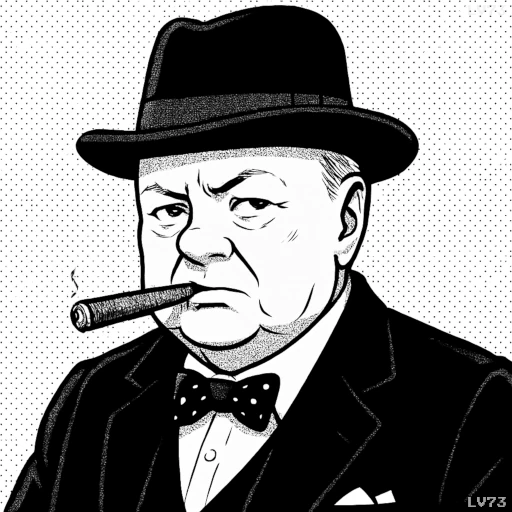“Battles are won by slaughter and maneuver. The greater the general, the more he contributes in maneuver, the less he demands in slaughter.”

- November 30, 1874 – January 24, 1965
- British
- Politician, army officer, writer
table of contents
Quote
“Battles are won by slaughter and maneuver. The greater the general, the more he contributes in maneuver, the less he demands in slaughter.”
Explanation
In this quote, Winston Churchill reflects on the art of military strategy, emphasizing that while slaughter (i.e., direct conflict and loss of life) and maneuver (i.e., strategic positioning and movement) are both essential to winning battles, the mark of a truly great general lies in their ability to minimize unnecessary bloodshed through strategic maneuvers. The quote suggests that the most successful military leaders are those who can outthink and outmaneuver their enemies, achieving victory with minimal loss of life. By focusing on tactics and strategy, a capable general can avoid the costly and destructive aspects of war, such as high casualties, while still achieving success.
Churchill’s perspective is likely influenced by his own experience in World War II, where military leaders like Field Marshal Montgomery were praised for their strategic brilliance, especially in battles like El Alamein, which were won not only through direct combat but also through careful planning, intelligence, and effective maneuvering. Churchill valued leaders who could think beyond brute force, understanding that true victory comes from the ability to outsmart and outmaneuver the enemy.
In modern contexts, this quote can be applied beyond military strategy. In leadership, business, and personal life, the greatest leaders often avoid unnecessary conflict and instead focus on creative problem-solving, negotiation, and effective strategy to achieve their goals. The idea of maneuvering through challenges, rather than resorting to direct confrontation or drastic measures, can often lead to more sustainable and less destructive outcomes. Churchill’s words remind us that wisdom, not just strength, is the key to effective leadership.
Would you like to share your impressions or related stories about this quote in the comments section?

